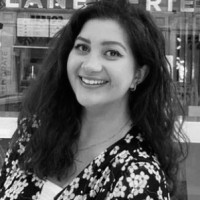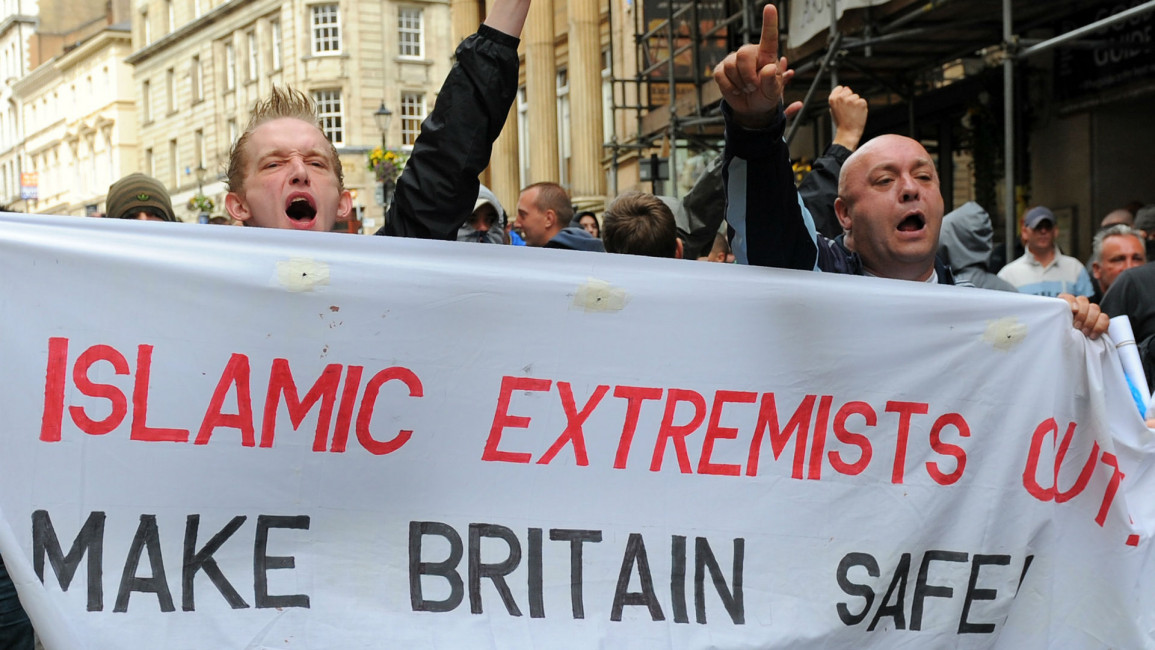
Finsbury Park: On whitewashing the 'white crusade'
London was struck by another terrorist attack on Monday morning. A white supremacist murdered a man and injured at least eight other people, ramming a van into a group of Muslims leaving the Muslim Welfare House in Finsbury Park after taraweeh prayers.
Witnesses said the attacker was shouting that he wanted to “kill all Muslims”.
The attack was undoubtedly fuelled by hate. His thirst for the blood of Muslims and his sadistic fantasy to see them all dead stems from the perverse idea that Muslims, in the mind of the white supremacist, are not people. To him, they are vermin and a burden.
To him, Muslims are not human. They are a contamination to society and must be exterminated.
To him, killing Muslims is not a way to resolve his anxieties over the group for which he carries so much hate, it is a nationalist duty.
It is what white supremacists commonly describe as a “crusade” against the “Muslim infidel”.
It is naïve to deny correlation between the perception of Muslims portrayed in mainstream right-wing media and such attacks. Muslims are "otherised", ostracised and are scapegoated by scare-mongering hatemongers to perpetuate societal divisions.
By constantly viewing Muslims as a threat to modern society, with “crusaders” convinced that their views are necessary for the protection of their community, white supremacists form a puritan perception what it is to be British. More dangerously, as proven with this and other Islamophobic attacks, their puritan perception maintains that to sustain their idea of "Britishness", both Muslims and Islam must be "cleansed" from Britain to keep it "terror-free".
This has led the British Muslim community to react in a variety of ways. Some want to meet violence with violence, while others reaffirm that Islam is peaceful. Muslims born and raised in Britain feel as though they have to regurgitate their British identity and restate their love for the country.
People of a white British background do not have to deal with this, because rightfully so, by default, their presence is not viewed in a hostile manner. No-one’s presence should be viewed as an immediate threat because of their identity, but when it does happen, to some, and doesn’t happen to others, even when the nature and motivation of crimes are similar, a problem emerges.
Divisive corelations
Soon after the attack, The Daily Mail, a down-market British tabloid, reported the attack as a “white van driver” driving into the victims outside “Finsbury Park Mosque where hate cleric Abu Hamza once preached”.
Aside from the fact that they reported the attack happening at the wrong mosque, the fact that it was described as the place in which a “hate cleric” once preached, immediately associates the victims with extremism and characterises them with the same properties that white supremacists use to justify their so-called crusade.
CNN’s national terror analyst Peter Bergen also claimed it was Finsbury Park Mosque that was attacked, and described Finsbury Park as a largely Muslim area.
“If you were interested in targeting a group of Muslims at a mosque that was notorious, this would be the mosque you would do it at,” he said.
In the midst of their inaccurate reporting and victim blaming, both outlets forgot to include that Finsbury Park Mosque was actually the first to be awarded with the Visible Communities Award in 2014.
Identity politics has clearly played a role in not only the build-up, but also the reactions to the attack. The otherisation of Muslims has not only dehumanised the victims, but has evidently shaped the discourse that justifies the so-called white crusade against Muslims in Britain, and the rest of the Western world.




